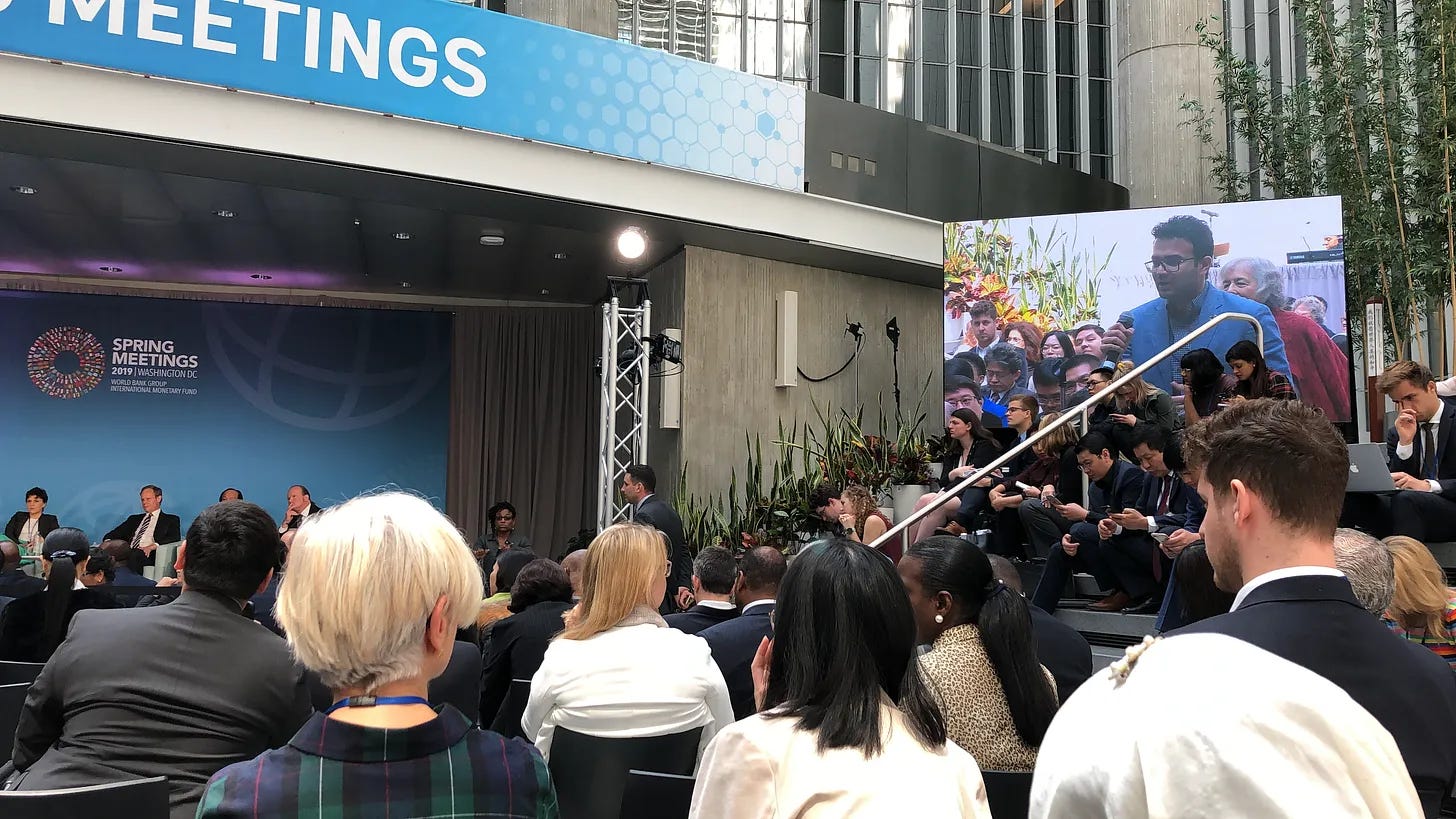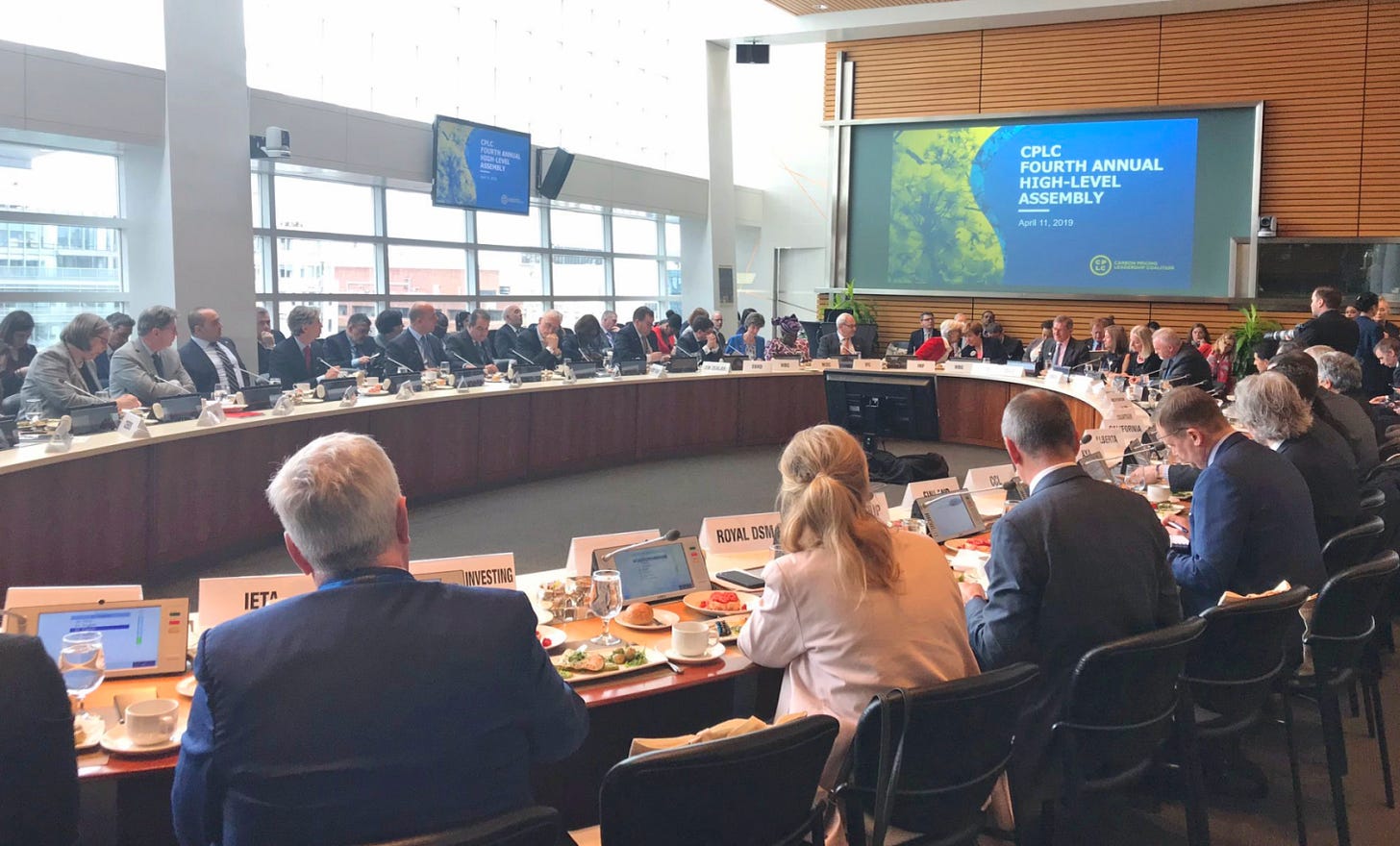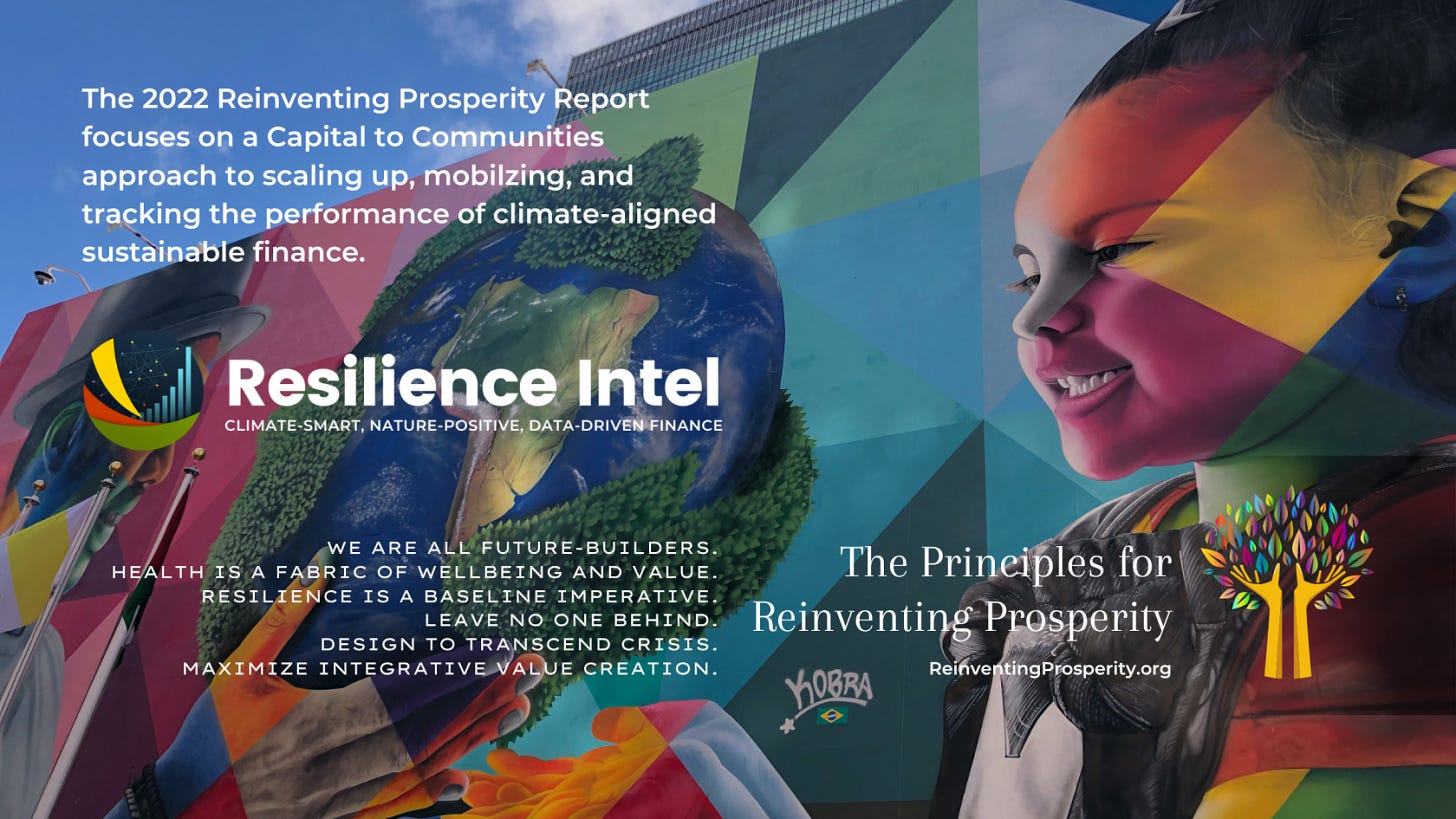Stakeholders call on World Bank to invest in health of people & planet
CCI submission to World Bank evolution process calls for investment in health of people & nature; human rights & climate safety; integral human development; stakeholder participation.
The Intergovernmental Panel on Climate Change, in its 6h Assessment Report (AR6), warns that the window for “successful climate resilient development” is rapidly closing. Worsening and ever more frequent climate impacts are making it harder to invest in both resilience and transformation. The AR6 has been described as “a survival guide for humanity”.
We are now seeing real-time devastating impacts of climate disruption piling up and compounding their effects.
We have recently lived through four consecutive hottest days on record—maybe the hottest days (at planetary scale) any human beings have ever experienced.
Food systems are increasingly stressed and at risk, and new evidence shows multiple breadbasket failure is becoming more likely.
The Financial Stability Oversight Council and Commodity Futures Trading Commission have warned that climate change threatens the entire financial system.
Last year, the U.S. Treasury Secretary called for the World Bank to evolve its mission and practice to cope with converging global crises.
Yesterday, Citizens’ Climate International submitted its own substantive contribution to the World Bank evolution process. In April, citizen climate advisors from 31 countries sent personal letters to World Bank Executive Directors representing their countries or regions. CCI citizen leaders in Africa have been joining in-person and virtual consultations, sharing stakeholder perspectives and aims for just and resilient development.

The overall list of recommendations is summarized in four core asks:
Invest to support the health of all human beings and all of nature.
Recognize human rights, and don’t punish the vulnerable.
Support multilateral cooperative arrangements to accelerate integral human development.
Include stakeholders in design, delivery, and tracking of development finance.
Specifically, we call for recognition of the Bridgetown Initiative; grounding of reforms in human rights and gender equality; meaningful, ongoing citizen input; direct delivery of money to households in need; addressing longer term needs of climate-resilient infrastructure; recognizing sovereignty and the rights of Indigenous peoples, including free, prior, and informed consent; guardrails to avoid greenwashing, in line with the United Nations’ Integrity Matters report; and, a coordinated full fair phaseout of fossil fuels, with support for the Fossil Fuel Non-Proliferation Treaty.
To put these asks in context, we note:
“The thread running through all of this is the recognition that value is created far beyond the transactional edge of specific financial arrangements. Failure to value that wider landscape has led to worsening vulnerability, climate disruption, nature loss, and preventable harm.”
We highlight the importance of community participation in decision-making:
“To uplift people and communities, and to deliver not just national development assistance but a measurable and reliable increase in human dignity, safety, and wellbeing, communities should take on a key role in decision-making processes. Our experience is that inclusion enhances ambition, accelerates and improves implementation, while making high standards more actionable, enforceable, transparent, and achievable.”
Vulnerability-sensitive debt-relief needs to move much more quickly. More than half of low-income countries are facing debt distress, even as costly climate disasters make every aspect of development more expensive. Sustainable investments need to make energy clean now, and support healthy, sustainable food systems; they also need to prioritize long-term benefits of climate-resilient infrastructure.
As I noted in our press release:
“The future wellbeing and security of all people and nations will require a full, fair phaseout of coal, oil and gas. There can be no more excuses; we must leave polluting business models behind.”
That’s big and complicated work, and it has to happen faster than we ever seriously considered before. We need to develop new models for cooperative financing of sustainable activities. We need to value innovations that deliver non-financial benefits to the common good, as foundations for all other value creation, and we need to make transformational tools and investment strategies available to marginal and underserved communities, countries, and regions.

CCI suggests multilateral ‘non-market’ cooperative arrangements—as outlined in Article 6.8 of the Paris Agreement—be used to make room for and expand the reach of this inclusive, co-financing standard for climate-resilient development. In the coming months and years, we should expect to see more and more trade deals with these climate-smart characteristics and support for co-investments.
There is no more time to lose. Let’s get to work.
Additional resources
Evolving World Bank mission & practice to support climate-safe integral human development
Global network of citizens urges World Bank Group to upgrade for fair and sustainable development
Non-market approaches as critical drivers of climate ambition
CCI report from June 2023 U.N. Climate negotiations: Only high ambition makes sense now
Roadmap for scaling impact investment in urban food systems, released by Food Trails Initiative
Capital to Communities – The 2022 Reinventing Prosperity Report


